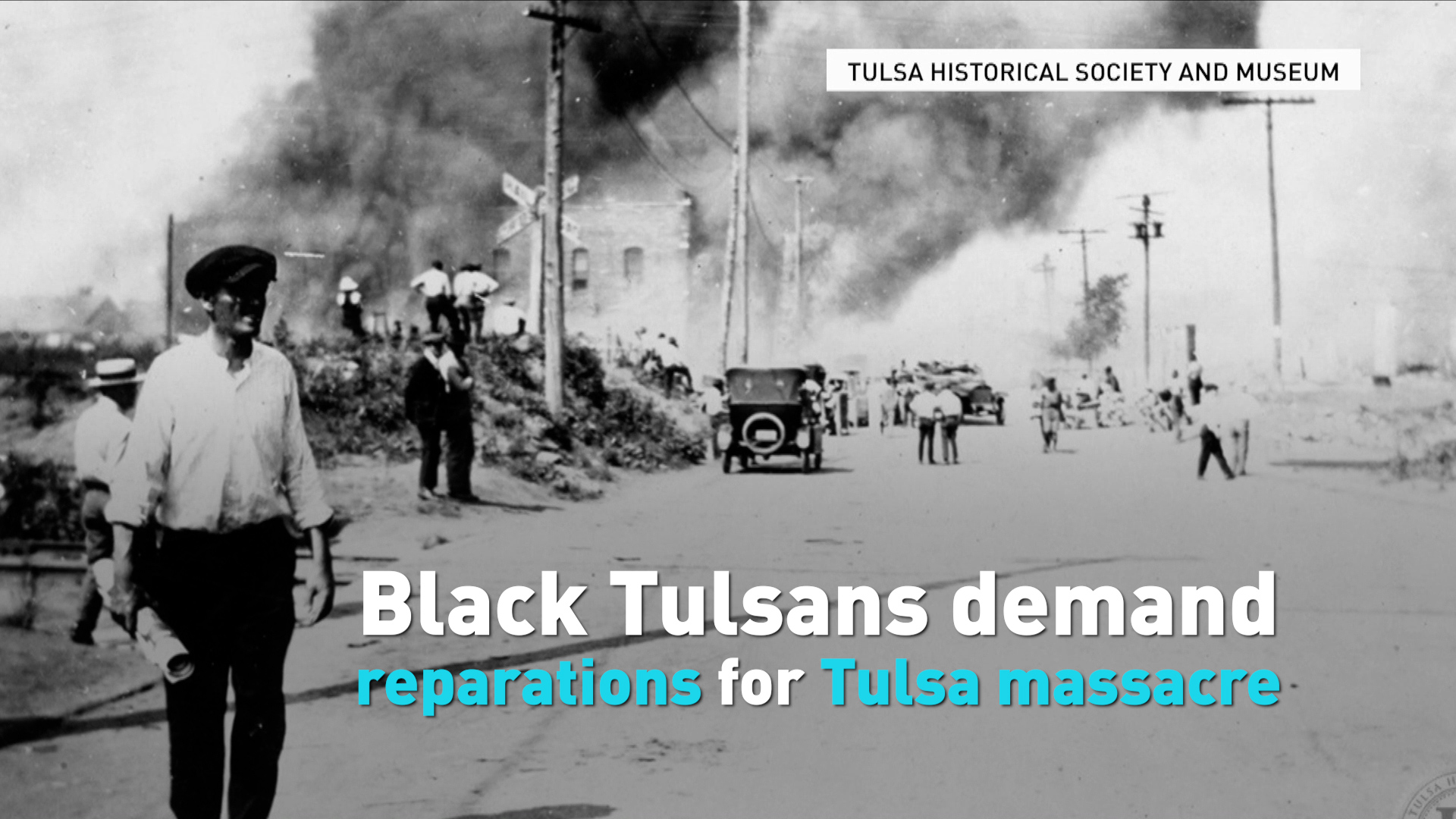02:56

It was here in the Greenwood district of Tulsa where the unthinkable took place starting on May 31st, 1921. This economically thriving area was known as Black Wall Street.
"My great-aunt Janie, she was in the Dreamland theater when the massacre happened."
Kristi Williams says Janie Edwards narrowly escaped a White mob that targeted Black residents and proceeded to destroy virtually this entire neighborhood, killing an estimated 300 people.
"It was white people shooting black people, there were bombs dropped, that type of thing and when I heard the stories, I was like wow that happened here?"
The massacre was kept under wraps for many years, Black Tulsans argue, by a White establishment that has never been held to account for these crimes. They say this country demands other nations be fair and just.
"When America has yet to be just and has yet to atone for her worst race massacre in American history which took place right here in Tulsa," says Reverend Robert Turner of the Vernon AME Church.
Many Tulsans want much more than just an apology for the massacre, pointing to an Oklahoma Race Riot Commission that recommended back in 2000 that reparations be paid to the Greenwood community.
"So let's go back to that report, what are some of the things that were in that report? It said that monetary reparations go to these survivors, these descendants. It's time to follow through on that," says Phil Armstrong of the Tulsa Race Massacre Centennial Commission.
On May 2nd, a Tulsa judge ruled a lawsuit demanding such reparations, with three massacre survivors, all over 100 years of age, as lead plaintiffs can proceed.
Williams says "they need to be able to in their lifetime have an opportunity to tell their story in a courtroom in front of a jury and talk about the harm that was done to their families, to their community and to them."
Harm, the lawsuit alleges, committed by city and state agencies that in many cases directed the mob violence and made it more deadly.
"I think reparations are long overdue. Imagine what kind of wealth would have been accumulated if African-Americans had had an opportunity to pass down home ownership, land ownership," says Devon Wright from the Metropolitan State University of Denver.
Some say reparations paid by Germany after the Jewish Holocaust in World War Two should be a model.
"Why shouldn't something similar occur not just in Tulsa, Oklahoma," Wright adds.
Other U.S. cities are also exploring reparations for Blacks and Native Americans.
"I still see Black men being shot, Black bodies lying in the street."
It's unclear how soon survivors like Viola Fletcher will be able to testify in Tulsa and how much money could potentially be paid out. Williams says reparations are only part of the effort to finally put Blacks on equal footing in her city.
"From housing, economic development, Black entrepreneurship, health, education, and we're going to let the community decide what do you want, what’s important for you," Williams says.
The goal, she says, to restore humanity to a community that was so violently stripped away more than a century ago.
For more, check out our exclusive content on CGTN Now and subscribe to our weekly newsletter, The China Report.

